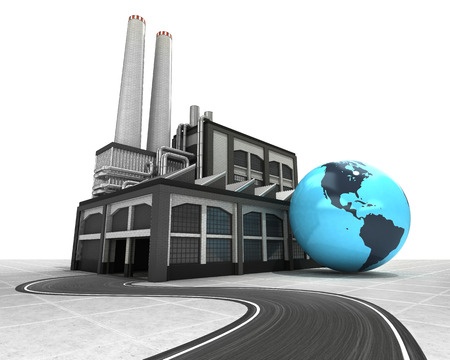The rapid advances within manufacturing innovation have transformed our lives. Starting with the transition away from an agriculture-based economy, manufacturing has contributed to higher productivity and rising living standards amongst both developing and advanced economies. Manufacturing still makes up to16% of global GDP. Today, technology is once again disrupting the world of manufacturing – this time in the form of what can be considered a “digital” factory & sustainable manufacturing.
Think of the security, quality, and affordability of most goods we consume today, we take for granted products that a generation before would have seemed miraculous. The technology behind transportation, smart phones, medical devices and food sources represents a new pinnacle of manufacturing innovation.
This latest wave of industrial revolution has been described by many terms, such as “Industrie 4.0”, the “Industrial Internet of Things”, the “Fourth Industrial Revolution”. The underlying theme is the same – establish a constant connectivity between Internet connectivity and every resource involved in manufacturing and delivery of goods. On top of that connectivity, the Digital Factory creates a shared virtual world that accurately models reality making better decisions such as reduces the consumption of resources, time and energy. This enables sustainable manufacturing solutions.
The Challenge: Increase Focus on Global Wealth Creation
While the digital revolution has already created significant impact in the industry area, its benefits do not yet offer rewards for all the 7 billion people around the world. Can we hope that this new innovation wave will bring a better quality of life to our entire civilization? And, at the same time, can we reduce the impact of manufacturing on our environment? At Dassault Systèmes we think so – this is a project we are committed to addressing over the next several decades.
For countries and companies, the key success factor will be adaptability to fast changing demand.
Manufacturing enterprises are often viewed only as profit-making machines for their shareholder. But for citizens and employees — and their whole nations — they include a larger part of responsibility. That’s why sustainable manufacturing is the new standard. Too much attention focused on beating the competition and cost reduction has harmed not only the social impact of manufacturing, but the organizations themselves. This jaded perspective needs to be replaced with a sustainable view that extends the product lifecycle to beyond the factory walls. Asia Agricultural Machinery of Korea, a Dassault Systèmes customer, is adopting digital as its universal language for design and collaboration. Their digital strategy to design and build a better product portfolio helps deliver agricultural equipment that is more customized, connected and sustainable than ever before – with a potential to create more food to feed our planet (read more here).
Emerging nations such as Brazil, Russia, India and China have already recognized this value of manufacturing. They have been generated enormous economic gains from not only the production of these goods, but also the design. However, they face issues such as rising wages, increasing environmental impact and quality concerns.
If all nations and people are to thrive together, manufacturing wealth can serve the greater needs of all the world’s denizens. This means that the right goods must be produced at the right cost, quality and volume that markets require. Goods must be created with new sustainable processes, most qualified employments to support each regional economy. For countries and companies, the key success factor will be adaptability to fast changing demand: the winners will be the ones that can understand and produce faster than the rest.
In my next post I’ll examine how the Digital Factory can help to address these challenges. Implementing the Digital Factory concept puts people at the center of the factory system, to free their cognitive functions, which enable him to focus on the innovation.
If you enjoyed this blog post, here are other related posts on this topic:

